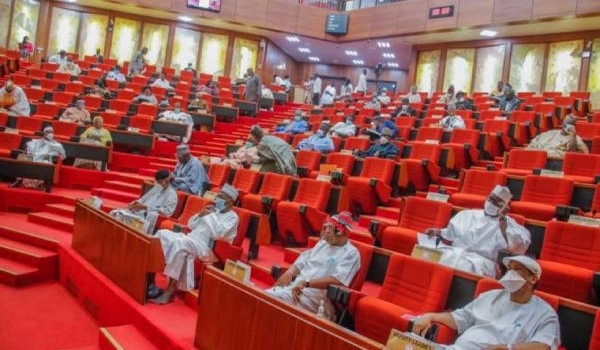Senate approves Direct and Indirect Primaries, passes Electoral Act
The Nigerian Senate has removed the contentious clause 84(2) from the Electoral Act Amendment Bill thereby rescinding its earlier decision on making direct primaries the only method of electing candidates by political parties.
At the resumption of its session on Wednesday, the Senate Leader, Senator Yahaya Abubakar, asked his colleagues to rescind the Chamber’s decision on clause 84 of the Electoral Act (Amendment) Bill, 2021, passed by the National Assembly on November 18, 2021.
The Clause which imposes Direct Primaries on Political Parties was expunged at Wednesday’s Plenary after the upper legislative house dissolved into the Committee of a whole to Consider President Buhari’s observations on the Electoral Bill.
The Senate made the necessary amendments by approving direct and indirect primaries or consensus as to the procedure for the nomination of candidates by political parties for the various elective positions in accordance with Order 87 subsection (C) of the Senate Standing orders.
It also approved the recommended Clause 84(3) that “a political party that adopts the direct primaries procedure shall ensure that all aspirants are given equal opportunity of being voted for by members of the party.”
Clause 84(4) further provides that “a political party that adopts the system of indirect primaries for the choice of its candidate shall adopt the procedure outlined below; (a) In the case of nominations to the position of Presidential candidate, a political party shall, (i) hold special conventions in each of the 36 states of the federation and FCT, where delegates shall vote for each of the aspirants at designated centers in each State Capital on specified dates.”
The clause provides that a National Convention shall be held for the ratification of the candidate with the highest number of votes.
The Senate Leader, in his presentation to tinker with the Electoral Act recalled that President Muhammadu Buhari had signified withholding his assent on the Electoral Act No. 6 2010 (Repeal and Re-enactment) Bill, 2021 which was passed by the National Assembly and forwarded to the President on Thursday, November 18, 2021.
Senator Abdullahi noted that the rationale for withholding assent bordered on his observation in Clause 84.
President Buhari in the letter dated December 13, 2021, and addressed to the Senate President, Ahmad Lawan, had explained that his decision to withhold assent to the electoral bill was informed by advice from relevant Ministries, Departments, and Agencies of Government after a thorough review.
According to the President, signing the bill into law would have serious adverse legal, financial, economic, and security consequences on the country, particularly in view of Nigeria’s peculiarities.
He added that it would also impact negatively the rights of citizens to participate in government as constitutionally ensured.
Senator Abdullahi, however, explained that the motion for re-commital of the bill to the Committee, on the Whole, was against the backdrop of the “need to address the observation by Mr. President C-in-C and make necessary amendment in accordance with Order 87(c) of the Senate Standing Orders, 2022 (as amended); and relying on order 1(b) and 52(6) of the Senate Standing Orders, 2022 ( as amended).”
President of the Senate says other observations sighted by other lawmakers will be reflected at the administrative level before it is sent to President Buhari for assent.
President Muhammadu Buhari has said that he is willing to sign if only the legislators will effect changes which must include the addition of consensus candidates and indirect primary options to the mode of selecting a candidate for an election.




